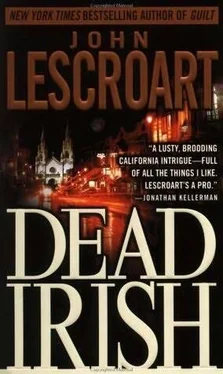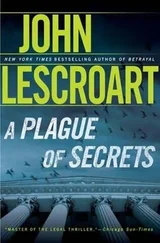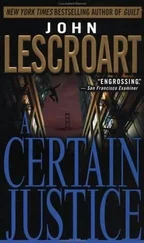John Lescroart - Dead Irish
Здесь есть возможность читать онлайн «John Lescroart - Dead Irish» весь текст электронной книги совершенно бесплатно (целиком полную версию без сокращений). В некоторых случаях можно слушать аудио, скачать через торрент в формате fb2 и присутствует краткое содержание. Жанр: Триллер, на английском языке. Описание произведения, (предисловие) а так же отзывы посетителей доступны на портале библиотеки ЛибКат.
- Название:Dead Irish
- Автор:
- Жанр:
- Год:неизвестен
- ISBN:нет данных
- Рейтинг книги:4 / 5. Голосов: 1
-
Избранное:Добавить в избранное
- Отзывы:
-
Ваша оценка:
- 80
- 1
- 2
- 3
- 4
- 5
Dead Irish: краткое содержание, описание и аннотация
Предлагаем к чтению аннотацию, описание, краткое содержание или предисловие (зависит от того, что написал сам автор книги «Dead Irish»). Если вы не нашли необходимую информацию о книге — напишите в комментариях, мы постараемся отыскать её.
Dead Irish — читать онлайн бесплатно полную книгу (весь текст) целиком
Ниже представлен текст книги, разбитый по страницам. Система сохранения места последней прочитанной страницы, позволяет с удобством читать онлайн бесплатно книгу «Dead Irish», без необходимости каждый раз заново искать на чём Вы остановились. Поставьте закладку, и сможете в любой момент перейти на страницу, на которой закончили чтение.
Интервал:
Закладка:
“Is that why it’s so deserted around here?”
Now was her chance. “That, just the slow business, and Ed’s funeral being today. There’s nobody here at all except us. Nobody’s been in at all.” Flirty eye move, shrug the breasts out. “And it’s late. I don’t expect anybody to come the rest of the day. I could even lock up now and it wouldn’t matter.”
He stood up, and she slid off the desk with a little bounce. “Well, you’ve been very helpful, Linda. Thanks.”
Another handshake. Again cool, dry, firm. She held it an extra couple of seconds, looked into his gray eyes. “We could get a drink maybe. There’s a lot we can talk about. Or just stay here,” she repeated.
A little peck on the cheek. “Thanks. I’d like that,” he said, “but I’m working now and I’ve got another appointment. Maybe a rain check, okay?”
“Sure, that’s cool.”
Out now to her desk. “Wait just a second,” she said.
She jotted her name and number on her notepad and tore off the sheet. “In case you remember something you wanted to ask.”
Then he was gone. She watched him walk across the empty lot through waves of late-afternoon heat. When he got in his car he turned back to look at the door and she waved a hand at him, but he probably couldn’t see her through the reflection.
Anyway, he didn’t wave back.
She turned the knob, locking the door, padded back to her desk and, sitting down, reached into her purse for the pack of Virginia Slims.
Linda was right, Hardy was thinking. I wouldn’t call Nika pretty. It would be like calling the Grand Canyon pretty, or Michelangelo’s David. Of course, he remembered her from the funeral, the way she kept staring at him. At least now he had a name to go with it-Nika Polk.
Where had she come from, he wondered, and what was it about sad-looking, basset-eared Sam Polk that had snagged her?
He closed his eyes, trying to visualize her again. She was tall, taller than her husband, perhaps five-eight, jet black hair over a classically hard Mediterranean face. A stunning face. Half-parted lips that she kept licking.
The only reason Hardy had caught Frannie when she’d started to faint was that Nika had been standing just behind her, and he had kept tearing his eyes away, forcing himself to look elsewhere. Frannie had been in his line of vision. It had been luck.
She had worn a simple woolen black cotton suit, severely cut, that nevertheless hadn’t diminished the thrust of her breasts above a waist Hardy thought he could encircle with both hands.
He shook his head. No, Linda, he thought, Nika ain’t that pretty at all.
He started the engine up. He wanted to go back and talk to Cruz, and besides, it would be cooler moving.
So Sam Polk had married Nika about six months ago. He looked to be around fifty-five. She was mid-twenties, maybe a little more. Got to be money, Hardy thought, at least to some extent. And after they’d gotten married, Polk had started having troubles with his business. It wasn’t that far a leap to assume that those troubles had led to problems at home.
But what was he thinking? There had been no hint of any trouble between Sam and Nika. What had made him think that?
And then he remembered her eyes fixing on him at the cemetery. He’d seen eyes like that before-the flirting hadn’t been playful, it was dead serious. The eyes of Nika Polk weren’t those of a happily married woman.
Had she ever looked at Eddie Cochran that way?
Chapter Eleven
JOHN STROUT made his personal policy very clear in the first month of his tenure as San Francisco ’s coroner. The responsibility of that position, according to U.S. Government Code 27491, is to determine the “cause, circumstances and manner of death” of individuals dying within a particular jurisdiction. And under “manner of death,” there are only four possibilities: natural causes, accident, suicide, or death at the hands of another.
In the course of doing that job, however, other elements, many of them political, have an opportunity to come into play. Strout, a tall, soft-spoken gentleman originally from Atlanta, wasn’t about to let anybody or anything affect his judgment on causes of death, and so he decided early on to send a message to those who would prefer a quick and sloppy verdict over a slow and correct one.
The victim in the case had been the cousin of the mayor and- not the greatest coincidence in the world, given the size of the city-brother-in-law to one of the supervisors. Strout came in to work that morning and found the morgue overrun with media people as well as with members of both the mayor’s and supervisor’s staffs.
Strout glanced at the body before going to his office, where he was hounded to issue some statement. He figured it was as good a time as any to get the word out.
A reporter for the Chronicle finally asked him point-blank, and rather insultingly, if he planned to make any decision at all in the foreseeable future. Strout had stood up to his full height behind his desk. “Seeing as this victim was stabbed twice and shot five times”-he said in his most syrupy drawl-“I’m very close, and you can print this, very close…”-he paused and smiled at the assemblage-“very close indeed to rulin’ out suicide.”
Strout wasn’t about to hurry and be wrong. After eleven years as coroner, it was gospel that once Strout gave a verdict, you could take it to the bank.
Now Carl Griffin and Vince Giometti sat in the air-conditioned visitors’ room at the San Francisco morgue. It was not a decorator’s paradise. The long yellow couch was too low, the commercial prints on the walls were ugly and hung too high. The only living plant by the one window to the right of the couch was no greener or prettier than the three plastic floral arrangements that graced, respectively, the center table (too short for the couch), the blue plastic end table, and the pitted mahogany sideboard.
Griffin and Giometti sat on either end of the couch. Between them, in an almost-new cardboard briefcase, was the file on the Cochran case. Giometti, a new father, had just finished saying something that made Griffin explode.
“Do I gotta hear this right after lunch? You think this is interesting? You believe anybody cares what your baby’s bowel movements look like, whether it’s hard or soft or runny or whether the goddamn corn gets digested on its way through?” Griffin jumped up, unable to sit still. “Christ!”
“If you had a kid, you’d know how important it was.”
“Why do you think I never had a kid? You think that was just dumb luck? You may not believe this, but I thought about it at one time, and you know what decided it for me?” He went down on one knee in front of his rookie partner. “I asked myself this question: I said, ‘Think about the reality of babyhood, and what’s the first thing that comes to your mind?’ ”
Giometti started to answer, but Griffin put up a hand.
“No, let me finish. The first thing that came to my mind was shit. Rivers of it every day for like a couple of years. Then I asked myself another question: Is there anything I like about shit? I mean, its smell, texture, various colors? Do I look at it the way Eskimos look at snow, with nuances and a hundred different names? No, shit is shit. And I am not interested in any of it- your kid’s, my own, any of it, okay?” He stood up. “So from today on can we do without the daily bm moment, please?”
He turned away and walked over to the window, breathing hard. He rubbed a leaf of the plant between thumb and forefinger.
“It’s a natural function, Carl,” Giometti said. “You shouldn’t be so uptight about it.”
Griffin thought he’d leave a thumbprint on the leaf, he squeezed it so hard.
Читать дальшеИнтервал:
Закладка:
Похожие книги на «Dead Irish»
Представляем Вашему вниманию похожие книги на «Dead Irish» списком для выбора. Мы отобрали схожую по названию и смыслу литературу в надежде предоставить читателям больше вариантов отыскать новые, интересные, ещё непрочитанные произведения.
Обсуждение, отзывы о книге «Dead Irish» и просто собственные мнения читателей. Оставьте ваши комментарии, напишите, что Вы думаете о произведении, его смысле или главных героях. Укажите что конкретно понравилось, а что нет, и почему Вы так считаете.












